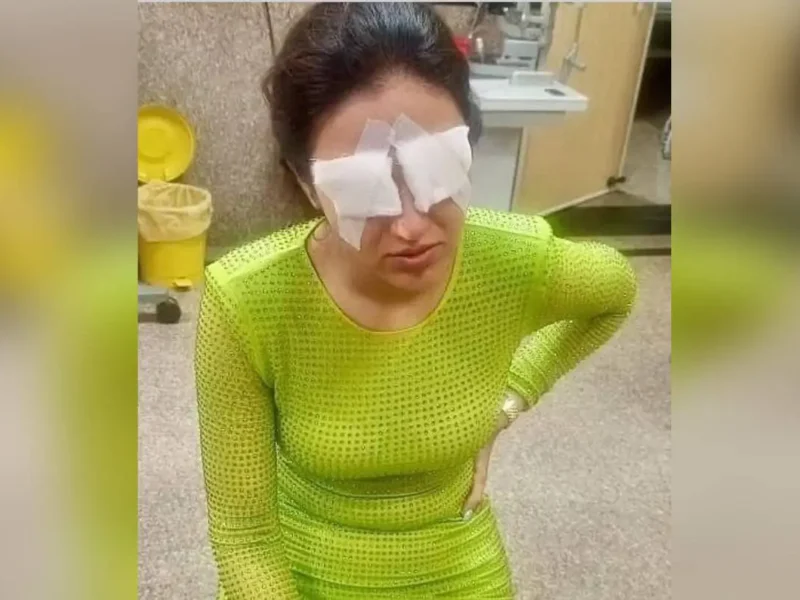
Breaking The Cycle Of Substance Misuse: A Guide To Recovery
By ANCHAL ARORA
People use drugs and alcohol for many reasons. They may experiment or use it just for fun, to relax, or to cope with emotions such as stress, depression, or anxiety.
When drug or alcohol use turns from an occasional recreational activity into a habit that causes problems in a person’s day-to-day life, this progression may form into a substance use disorder.
At home, in school, at work, or in relationships with the people we love, misuse may lead to:
Conflicts or stress in personal relationships
Declining mental health, physical health, or wellness
Difficulty meeting work and family responsibilities
Legal troubles
Uncontrolled debt
When someone has a mental health disorder and at the same time develops a problem with drugs or alcohol, these conditions are referred to as “co-occurring disorders” or a “dual diagnosis”.
Until the late 1970s, mental health and substance use disorders were treated separately, using different approaches. Unfortunately, as a result, some people facing mental health challenges did not get help in dealing with their drug or alcohol misuse, and some people with drug or alcohol problems did not get treatment for their mental health disorders. The failure to treat one condition made it more difficult to manage the other.
Now, mental health professionals see the connection between co-occurring disorders and more often treat them together. Rehab facilities and specialists are paying special attention to the link between treatment for mental health disorders and treatment for substance use disorders, using methods to heal the whole person.
In 2015, about 8.1 million adults in the United States had co-occurring disorders, according to a national survey by the Substance Abuse and Mental Health Services Administration.
In fact, compared with the general population, people with substance use disorders are more likely to also experience a mental health disorder. In 2015, more than 40 percent of adults with substance use disorders also had a mental health disorder, while only about 18 percent of all adults in the general population experienced mental health disorders.
Substance use disorders and mental health disorders affect some of the same areas of the brain, making it easier for someone who has one of these conditions to develop the other. In fact, drug use can cause mental health disorders, especially for those who are already at risk, or it can make the symptoms of a mental health condition worse.
Mental health conditions that are often associated with problems with drugs or alcohol include:
Depression
Eating disorders
Bipolar disorder
PTSD
People who are dealing with these mental health disorders may turn to drugs or alcohol in an attempt to relieve their symptoms and stress, leading to substance use disorders.
In addition, people who are having problems with drugs or alcohol can develop symptoms that mirror the signs of mental health disorders such as depression and PTSD.
Treatment of co-occurring disorders
For co-occurring disorders, recommended treatment considers the overlap in the causes and effects of substance use problems and mental health conditions and aims to explore, address, and heal them together. This is often called integrated treatment.
Integrated treatment approaches are used at many inpatient rehab centres as well as in outpatient treatment programs. Even after treatment and recovery, these approaches are important in helping people manage their daily lives without drugs or alcohol.
Through this method, people with co-occurring disorders can learn about their specific problems in a safe and positive way and set goals for recovery from both substance use and mental health conditions. Integrated care may include self-help groups that allow people to discuss their disorders and learn coping skills in a safe, supportive place.
Integrated care programs can also offer medications to help people with mental health conditions.
Antipsychotics can help those who are experiencing symptoms of schizophrenia and related disorders.
Antidepressants help treat those who have depression that is not caused by their substance use.
Anticonvulsants may be beneficial for people with bipolar disorder and may help relieve drug or alcohol withdrawal symptoms.
Healthcare providers and counsellors can work together to understand the nature of their patients’ substance use disorders and mental health conditions, so they can adapt the treatment to help patients stop using drugs or alcohol and lower their risk for relapse.
Co-occurring disorders can be hard to deal with on your own. But integrated treatment programs can help you get back on track. If you or someone you know is experiencing co-occurring disorders, help is available.
(Arora is Outreach Specialist with StartYourRecovery.org based in Alexandria, VA)




